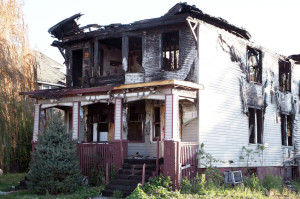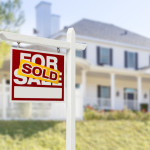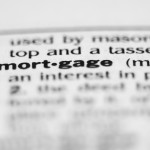What first-time homebuyers need to know after a wildfire
 Wildfires can devastate homes and communities, as we saw during the recent wildfires in Los Angeles. If you’re a first-time homebuyer, experiencing such a disaster can feel overwhelming, especially when you’re navigating the challenges of rebuilding and recovery. However, knowing the right steps to take after a wildfire can help you protect your home and investment. Below, we outline key actions you should take if your home is affected by a wildfire and how to handle the aftermath effectively.
Wildfires can devastate homes and communities, as we saw during the recent wildfires in Los Angeles. If you’re a first-time homebuyer, experiencing such a disaster can feel overwhelming, especially when you’re navigating the challenges of rebuilding and recovery. However, knowing the right steps to take after a wildfire can help you protect your home and investment. Below, we outline key actions you should take if your home is affected by a wildfire and how to handle the aftermath effectively.
1. Ensure safety first
Before returning to your property, it’s crucial to confirm with local authorities that it is safe to do so. Wildfires can leave behind hazards such as unstable structures, smoke, and even potential flare-ups. Avoid re-entering areas with active risks, as safety should always be your top priority.
In Los Angeles, where the recent fires caused extensive damage, officials warned residents not to return home until given the all-clear. Following this guideline helps ensure you stay out of harm’s way during the recovery process.
2. Contact your insurance company
Once it’s safe to assess the damage, the next step is to contact your insurance provider. Whether you have homeowners insurance, renters insurance, or both, it’s essential to notify them promptly. Start the claims process as soon as possible, as it may take time for adjusters to visit and assess the damage.
Document everything by taking clear photographs and videos of the damage to your home and property. This will help with your insurance claim and give you a damage record. Repairs may sometimes be delayed while waiting for the insurance company’s assessment. Avoid making repairs before your adjuster has had the chance to evaluate the situation.
3. Seek temporary housing
If your home is no longer habitable, you may need to find temporary housing while repairs are underway. This can be a stressful process, especially in a competitive housing market. The recent LA wildfires, for example, saw a surge in demand for temporary accommodations, which led to higher rents in the area.
As a first-time homebuyer, it’s essential to be aware of potential rent increases during this time. Be open to exploring neighboring areas for affordable housing options, even if it’s a bit further from your original home. This flexibility can save you money during the recovery period.
4. Access available assistance
While recovering from a wildfire is challenging, resources are available to help. Organizations such as FEMA (Federal Emergency Management Agency) and the American Red Cross often provide disaster relief, shelter, and resources to those affected by natural disasters. Additionally, your bank or mortgage provider may offer disaster relief options, such as forbearance on your mortgage payments or assistance with other immediate financial needs. Taking advantage of these programs can help ease the financial burden of recovery and allow you to focus on rebuilding your home and your life.
5. Be cautious of scams
Unfortunately, natural disasters can bring out bad actors looking to exploit distressed homeowners. After a wildfire, scams targeting homeowners are common, from fraudulent contractors offering repairs to scammers posing as insurance adjusters. To avoid falling victim to a scam, engage only with licensed and reputable contractors. Verify their credentials and always get multiple quotes before agreeing to any repairs. Avoid sharing personal information with individuals you haven’t verified, and report any suspicious activity to local authorities.
Make sure you have comprehensive home insurance
This experience underscores the importance of comprehensive home insurance coverage for first-time homebuyers. Your policy should cover fire damage and other potential risks, such as flooding and earthquakes. If you live in an area prone to wildfires, discussing your coverage options with your insurance provider and ensuring you’re adequately protected is critical.
While navigating the challenges of post-wildfire recovery can be daunting, following these steps can help you manage the process with more confidence and less stress. You can rebuild your home and continue protecting your investment by taking immediate action and accessing available resources. Remember, your home is not just a place—it’s a long-term investment. And with the right planning and support, you can recover after a wildfire.








